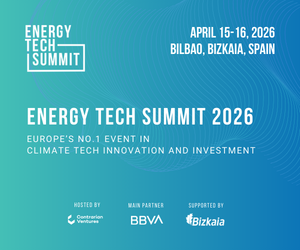Search - Search on Articles, Blogs & Tags
Total Results : 1161
BOC takes 15 per cent stake in Don Valley CCS project
- 2012-06-14 20:57:30
- Junior Isles
UK gas supplier BOC has taken a 15 per cent stake in the £5bn carbon capture and storage (CCS) project being planned by 2Co Energy at the Don Valley Power Project in Doncaster.
Renewables show progress despite uncertainties
- 2012-06-12 16:23:03
- Junior Isles
Renewable energy sources supplied 16.7 per cent of the total energy consumed in 2011, though investment into renewables was still 15 per cent lower than the $302 billion put into fossil fuels, two reports published by the United Nations Environment Programme (UNEP) and the Renewable Energy Policy Network for the 21st Century (REN21) have said.
Fresh water shortages pose threat to coal and nuclear generation
- 2012-06-05 01:58:10
- Junior Isles
Higher water temperatures and lower river flows due to climate change pose significant operational and cooling problems for nuclear and coal-fired power plants in both the US and Europe, a study published in Nature Climate Change warns.
German solar generation hits record levels
- 2012-05-29 22:46:07
- Junior Isles
German solar power plants produced an unprecedented 22 GW of electricity through the midday hours of Friday 25th and Saturday 26th of May, equivalent to 20 nuclear power stations running at full capacity, Norbert Allnoch, director of the Institute of the Renewable Energy Industry in Muenster has said.
North America leads CCS development
- 2012-05-29 22:44:08
- Junior Isles
Analysis by Bloomberg New Energy Finance (BNEF) estimates that the world’s first carbon capture and storage (CCS) unit will start operation in the US in 2013.
Putin prevents power privatisation plans
- 2012-05-25 06:35:50
- David Flin
President Putin of Russia has announced that the Russian Government has placed majority stocks of Federal Grid FSK and power distributor MRSK Holding on a list of assets that cannot be sold to private owners, making it unlikely that they will be part of the government’s privatisation drive in the near term.
Russian infighting puts the brakes on power privatisation
- 2012-05-24 15:07:08
- Junior Isles
Russian stocks have taken a significant hit after President Putin declared that Medvedev’s plans for privatisation in the Russian energy sector are being cancelled, reigniting worries of infighting amongst Russia’s key politicians.
SSE sees renewables profit offset poor retail performance
- 2012-05-16 23:29:32
- Junior Isles
Major UK energy company SSE has seen profits rise 2 per cent thanks to renewable generation profits offsetting falls in the retail division.
E.ON to close three gas-fired plants
- 2012-05-15 00:33:04
- Junior Isles
German utility E.ON AG intends to permanently shut down three unprofitable gas-fired power plants in southern Germany, according to media sources.
EU slump underlies shift back to coal-fired generation
- 2012-05-11 01:24:17
- Junior Isles
Europe's economic slump has depressed overall emissions and the price of carbon in the EU ETS, allowing utilities to turn back to cheap, highly polluting coal-fired generation while still meeting their emissions targets, recent figures show.











